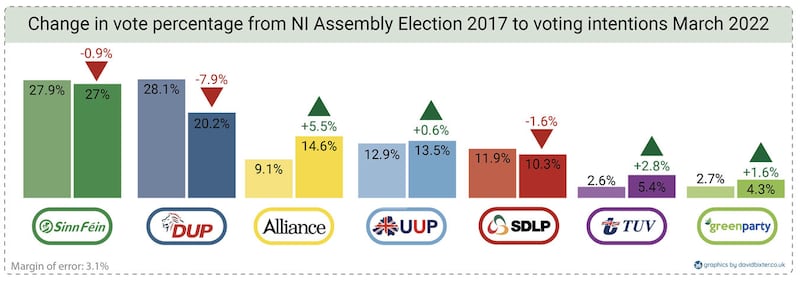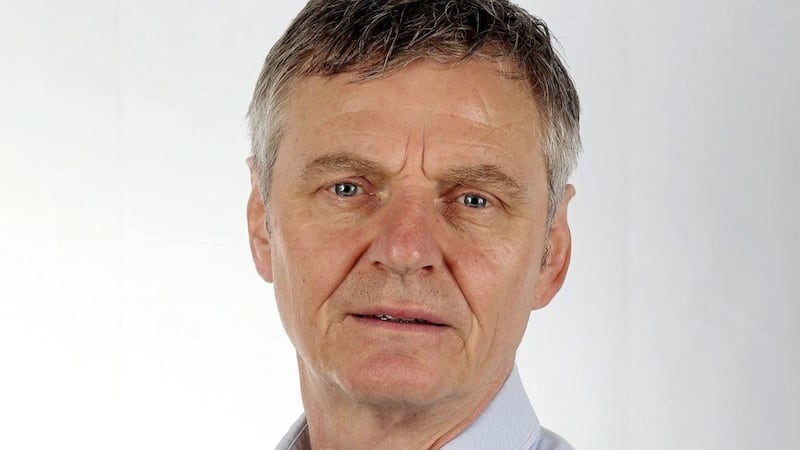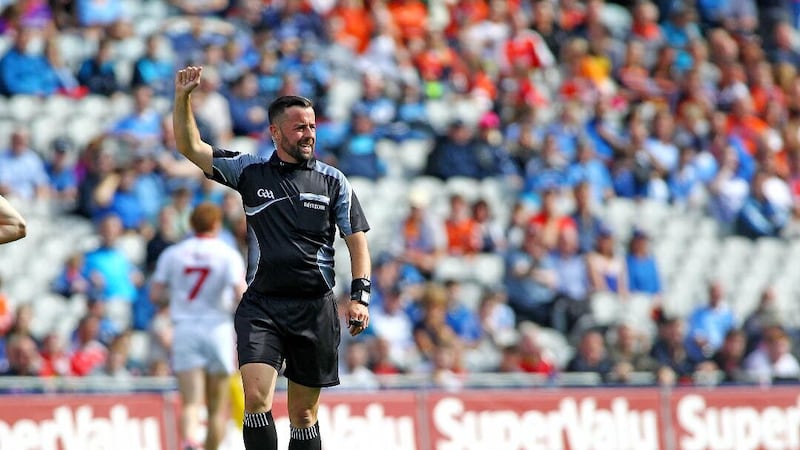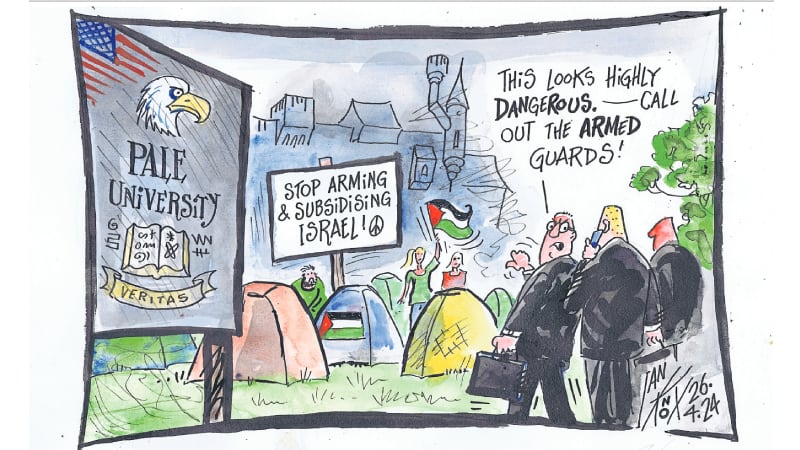WHILE a lot can happen in the month between now and May 5, successive opinion polls have consistently identified the likely shape of the next Stormont assembly.
Change is afoot and the current party rankings are expected to alter significantly, with Sinn Féin emerging as Stormont’s top dog – by a considerable margin.

With Michelle O’Neill on target to be first minister, will the DUP churlishly threaten to take its ball home, unable to accept symbolism that points to deeper shifts within society?
If the support for Sinn Féin reflected in today’s Institute of Irish Studies-University of Liverpool/The Irish News survey is matched on polling day, it will represent an extraordinary performance, with the party upholding its 2017 share of the popular vote.
Arguably a proportion of the support is based on aspiration coupled with a reaction to DUP posturing, rather than on Sinn Féin's record in government. Seemingly, the angry anti-protocol protests and constant harping are having a similar effect as Arlene Foster’s ‘crocodile’ remark, only played on a loop.
The DUP’s nose will be bloodied, according to the survey, and the party will be relegated to second place in the assembly, an outcome that looks set to have a dramatic yet disproportionate impact on the institutions, as Sir Jeffrey Donaldson seeks to save face.
The threat to hold the administration to ransom, ostensibly while the EU and British government resolve issues around the protocol, appears to be less about Irish Sea border checks and more about the DUP buying time to adjust to the new circumstances.
Critics say its huffing, alongside what appears to be a disingenuous defence of the Good Friday Agreement, is designed to distract the unionist electorate from the true origins of the protocol crisis, much of which is manufactured.
Leakage from the DUP to the TUV is still on the cards though not on the scale indicated at the beginning of last year when fear of mass voter migration to Jim Allister’s one-man-band triggered a panic that has yet to fully pass.
For all its pitching of a five-point plan on bread and butter issues, the DUP’s claim that it has Northern Ireland’s interests at heart rings hollow after it continually prioritised nebulous concerns about the north’s constitutional position, that have been dismissed by the courts, over a very real cost of living crisis and a broken health service.
Political unionism is also losing votes towards the middle of the spectrum as Alliance’s growth is predicted to continue, with the party's transfer friendliness highlighted in today’s polling threatening to spring a surprise.
The assembly’s ‘others’ won’t yet match the numbers of the nationalist and unionist blocs but Stormont’s third way is steadily establishing itself as a credible alternative to parties who for a growing swathe of the electorate appear too preoccupied by constitutional matters.
A strong showing by Alliance on May 5 is likely to see further calls for reform of the institutions, a dismantling of the ‘ugly scaffolding’ and perhaps changes - or at least promises to consider changes - to titles.
For the nationalist and unionists parties who target the periphery of the centre ground, the forecast isn’t good, although again transfers may help ensure their final representation in the assembly is greater than their respective share of the popular vote suggests.
Doug Beattie’s social media indiscretions are mostly forgotten but his moderate ‘union of people’ message doesn’t appear to be attracting enough disillusioned DUP voters and wooing back votes borrowed by Alliance.
The SDLP, meanwhile, for all its improved profile and vigour is still languishing, unable to capture the imagination of enough younger voters or win back those who drifted to Sinn Féin.
The party remains rightfully optimistic of making breakthroughs in some constituencies but the figures suggest that there may be losses elsewhere.
For the smaller parties it’s generally as you were. Support for the TUV is double what it was at the 2017 assembly election but the party will struggle to turn that into seats.
The Greens too are growing but likewise will have difficulty increasing their quota of MLAs, especially as they are strongest in constituencies where Alliance fares well.
People Before Profit is likely to retain its seat in West Belfast, where it topped the poll in 2016, but again will find it hard to double its number of seats.
And let’s not discount that 17 per cent plus who have yet to commit themselves – an influential chunk if it tips in one particular party’s favour.
Read More
- Exclusive: Sinn Féin extends lead over DUP in new poll
- Protocol ranks as most important issue for more unionists - but health and economy still biggest concerns
- Robin Swann rated best executive minister - with DUP bottom of pile
- Paisley/McGuinness/Robinson administrations rank highest on delivery and reconciliation
- David McCann – Alliance look to be big winners in transfer market (premium)








